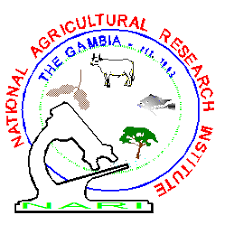Skip to content

We are happy and proud to have a Joint Venture agreement with NARI. Together we will develop the agricultural site at Banjulinding and create jobs, education, and internships for young people. Teaching ‘love’ for agriculture.
Agriculture plays a vital role in the economic development and food security of any nation, and The Gambia is no exception.
As a country heavily reliant on agriculture, The Gambia recognizes the significance of research and innovation in improving agricultural practices, increasing productivity, and ensuring sustainable development in the sector.
The National Agricultural Research Institute (NARI) serves as a cornerstone of agricultural research in The Gambia, playing a crucial role in driving agricultural advancements and contributing to the overall growth and well-being of the nation.
One of the primary roles of NARI is to conduct research on various aspects of agriculture, ranging from crop improvement and livestock management to agroforestry and natural resource conservation. By conducting research trials, experiments, and investigations, NARI aims to generate scientific knowledge and evidence-based solutions that address the challenges faced by Gambian farmers.
Through its research activities, NARI helps to develop and disseminate improved crop varieties, pest and disease management strategies, and sustainable farming practices, thereby empowering farmers and enhancing agricultural productivity.
Furthermore, NARI plays a vital role in promoting technology transfer and capacity building among farmers and agricultural extension workers.
The institute collaborates with local and international partners to organize training programs, workshops, and demonstrations to educate farmers on the adoption of modern agricultural techniques and technologies. By imparting knowledge and skills to farmers, NARI enables them to implement more efficient farming methods, make informed decisions, and enhance their overall productivity and income.
This, in turn, contributes to poverty reduction, rural development, and improved livelihoods.
In addition to its research and capacity-building functions, NARI serves as a valuable platform for collaboration and networking within the agricultural sector. The institute fosters partnerships with universities, research institutions, and other stakeholders, both nationally and internationally, to facilitate knowledge sharing, joint research projects, and technology exchange.
By collaborating with various entities, NARI ensures that its research findings are relevant, applicable, and responsive to the needs of Gambian farmers and the agricultural sector. This collaborative approach strengthens the research ecosystem, encourages innovation, and fosters sustainable agricultural development in The Gambia.
The importance of NARI extends beyond the immediate benefits to farmers and the agricultural sector. The institute’s research efforts also contribute to food security, environmental sustainability, and economic growth in the country.
By improving crop yields, enhancing farming techniques, and promoting sustainable practices, NARI helps to ensure a steady and sufficient supply of food for the population.
Moreover, the institute’s research on environmental conservation and natural resource management supports the preservation of biodiversity, soil health, and water resources, thus promoting long-term sustainability in agriculture. Furthermore, by driving agricultural growth and productivity, NARI plays a crucial role in boosting the economy, generating employment opportunities, and reducing dependence on food imports.
In conclusion, the National Agricultural Research Institute (NARI) in The Gambia plays a pivotal role in advancing agricultural practices, improving productivity, and ensuring sustainable development.
Through its research, technology transfer, and collaboration efforts, NARI contributes to the overall growth, food security, and economic well-being of the nation. The institute’s commitment to generating scientific knowledge, empowering farmers, and promoting innovation makes it an indispensable institution in The Gambia’s agricultural landscape.

